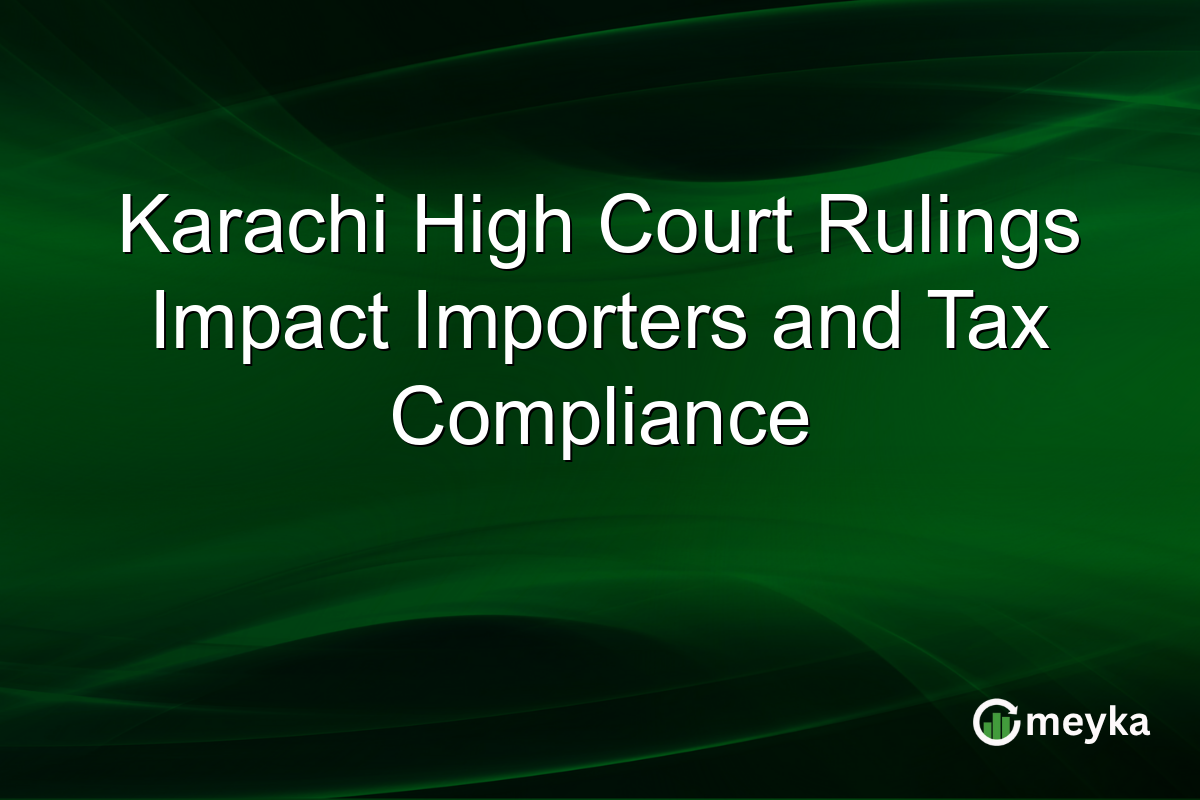Karachi High Court Rulings Impact Importers and Tax Compliance
Recent Karachi High Court decisions have sent ripples through Pakistan’s business sector, particularly affecting importers and their approach to tax compliance. These rulings primarily address customs issues, including the clearance of raw materials and the handling of tax notices. For businesses operating in Karachi, understanding these decisions is crucial for maintaining compliance and ensuring smooth operations. This article delves into the specifics of these rulings and their implications for importers in Pakistan.
Continue Reading on Meyka
This article is available in full on our main platform. Get access to complete analysis, stock insights, and more.
Read Full Article →





